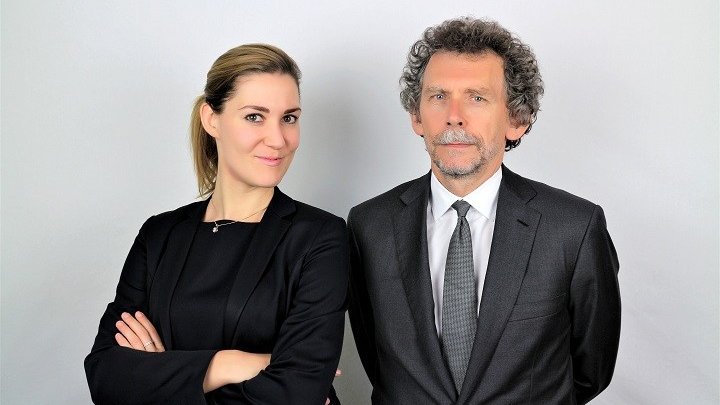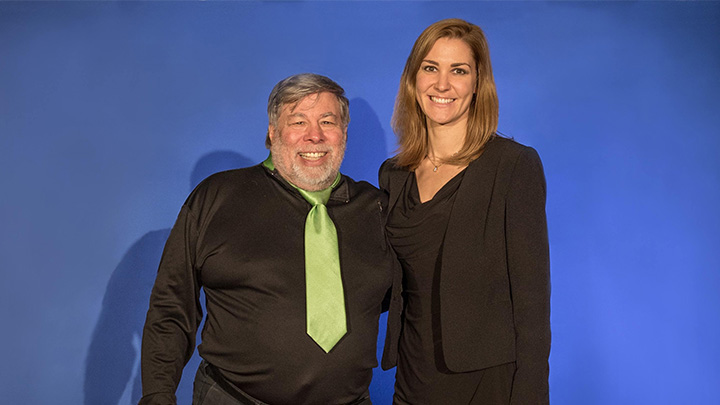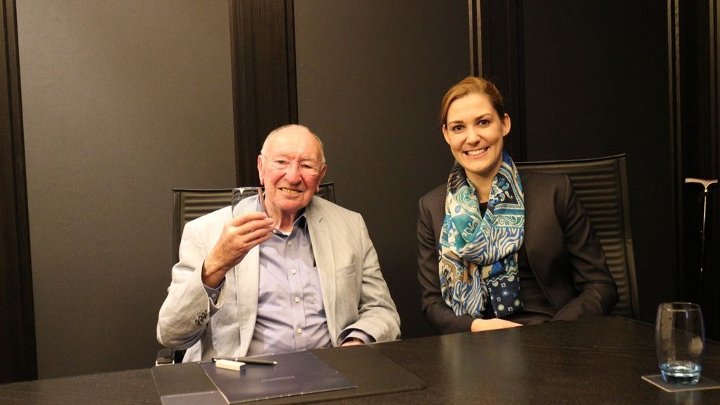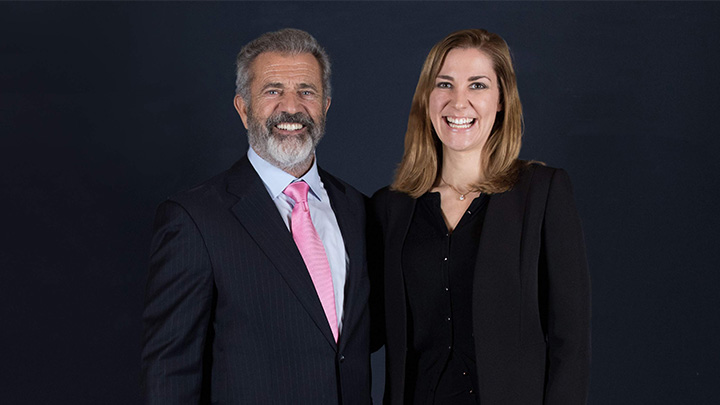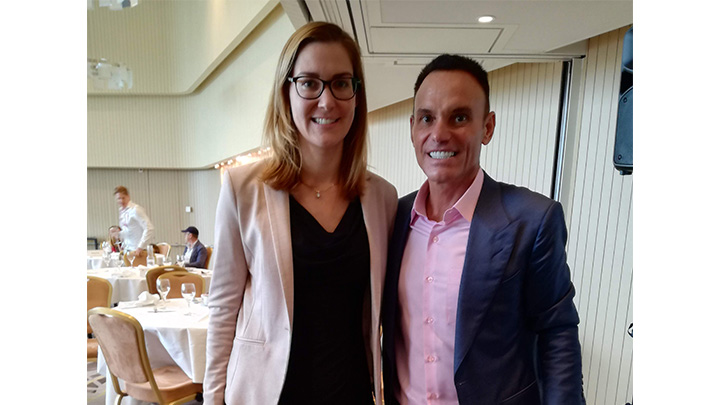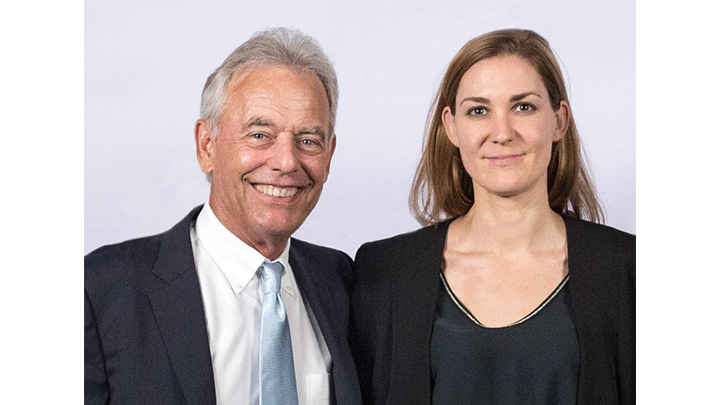Welcome to the Master Negotiator Course!
Most professionals gain a lot of experience negotiating and communicating over the course of their careers. And yet, we often see a wide skill gap in communication and negotiation skills, causing even senior professionals to miss out on valuable opportunities to create more business, negotiate better outcomes and strengthen relationships.
The Master Negotiator Certificate Course is a flexible, fully self-paced course worth more than an entire semester of content as you would receive during an MBA or LLM at a top university. It is designed to help you translate experience into expertise and outperform in your negotiations with business partners and clients.
With dozens of practical negotiation examples across 100+ videos, 20+ quizzes, 5 negotiation role-plays for you to download and lots of self-assessment and worksheets supplemented with 60+ interview insights from leading practitioners, this course creates an engaging and hands-on environment for anyone hoping to advance their skills.
- The Harvard Concept. Using interest-based negotiation to optimize results.
- Collaborative Negotiation. How to create value in every deal.
- Competitive Negotiation. When you have to bargain with them.
- 80% of the outcome is preparation. How to prepare effectively in no time.
- Relationships matter. How to balance issues and relationships, create trust, rapport and long-term commitment.
- Effective communication. Aligning people behind the table and across.
- Psychology and decision making. One step ahead in your negotiation.
Chapters can be done in random order based on interests and quizzes repeated until the passing mark for certification is met. Click on the videos in module one for free previews. For any questions, reach out to office@necademy.com any time!
We look forward to seeing you online!
Dr. Claudia Winkler
Module 1: Introduction to Negotiation & The Future of Lawyering
- what crucial role negotiation skills play in daily legal work
- how the landscape of lawyering is changing and how it changes the requirements for successful lawyers
- how today's Dispute Resolution Processes are all structured around negotiation skills
- what value negotiation savvy lawyers can add for their clients
- what it takes to become a top lawyer in our generation
- what major mindset shift and what skills this course will bring to you
1.1: How to make the most of the Master Negotiator Course

1.2: Suggested Semester Curriculum

1.6: Could You Be That Lawyer?

1.8: The Big Shift

1.13: Delano Furtado - Joint Venture Transaction

1.14: Bonus Task: Self Reflection and Goals

Module 2: From Traditional Bargaining to Interest Based Negotiation
- How to use a win-win strategy (the Harvard method)
- How to create value by focusing on interests rather than positions
- How to separate the people from the problems
- How to create multiple options for value-added negotiation outcomes
- How to use objective criteria for a more effective negotiation
2.2: Interest Based Negotiation

2.3: The Difference Between Positions & Interests

2.4: Interest Based Negotiation Scenarios

2.5: Asking Why

2.6: Why Positions are Dangerous

2.7: Bonus Task

2.8: Five Masters Tips for Focusing on Interests

2.9: Practical Application Example

2.10: Interest Exercise

2.11: Separating People from Problems

2.12: Soft on The People - Hard on The Problem

2.13: Being Supportive To Get What You Want

2.14: Four Steps to Separate People from Problems

2.15: Options Are Everywhere

2.16: Creating Options

2.17: Creating Options - Salary Negotiation Example

2.18: Using Objective Criteria

2.19: Application Example for Objective Criteria

2.20: How to do Negotiation Roleplays

2.21: Negotiation Exercise: "Lime Grapes for Life" Intro

2.22: Download Confidential Instructions for Testle

2.23: Download Confidential Instructions for Ponson & Ponson

2.24: Negotiation Exercise: "Lime Grapes for Life" Debrief

2.25: Bonus Reflection Paper

2.26: Gary Born - Interests in Arbitration Agreements

2.27: Charlie LaFond - Growing up as Positional Bargainers

2.28: Joel Lee - City Council Negotiation

2.29: Tat Lim - Helping Clients see their Interest

2.30: Michael Mcllwrath - Interests in Personal Injury

2.31: Raffael Probst - Separating People from Problems

2.32: Delano Furtado - Acquisition Negotiation

2.33: Bonus Task for Delano Furtado - Acquisition Negotiation

2.34: Gary Born - Choice of Law Provision Example

2.35: Shashi Dholandas - Nomination of Neutrals

Module 3: Your Negotiation Style
- What negotiation style makes the most effective negotiator
- How to deal with the dynamics between the various negotiation styles you, your client and your partner bring to the table
- How to increase your repertoire of negotiation style to get the maximum out of every situation
- How to combine assertiveness and receptiveness in your style and – How that can give you the best negotiation outcomes
3.2: Understanding the 5 Negotiator Types

3.3: Negotiation Style Dynamics

3.4: What Makes the Most Effective Negotiation Style?

3.5: Using the Best Traits of each Style to Become the Most Effective Negotiator

3.6: Negotiation Style Exercise

3.7: Bonus Reflection Paper - Negotiation Style Exercise

3.8: Rashda Rana - Aggressive Negotiation Styles

3.9: Nadja Alexander - Adjusting your Negotiation Style

3.10: Michael Mcllwrath - Wrong Assumptions

3.11: Charlie LaFond - Authentic Communication

3.12: Joel Lee - "Are you hanging up on me?"

Module 4: Claiming Value in Your Negotiations
- What numbers you need to prepare
- Whether you should make the first offer
- How high you should start
- What is the best way to make concessions
- Where to set your price goal
- What it means to “anchor” the other side
- The difference between an optimistic v. an outrageous offer and how to react to it
4.1: Claiming Value

4.2: When Should We Talk About Money

4.3: What Numbers Do You Need to Prepare

4.4: Should I Make the First Offer?

4.5: How High Should You Start

4.6: What If They Start Too High?

4.7: Concession Strategies

4.8: Negotiation Exercise: "Investing in Mosia" Intro

4.9: Download Confidential Instructions for Seller FreshFields

4.10: Download Confidential Instructions for Buyer MinIng

4.11: Negotiation Exercise "Investing in Mosia" Debrief

4.12: Bonus Reflection Paper

4.13: Charlie LaFond - How to claim Value

4.14: Michael Mcllwrath - The Power of a First Offer

4.15: Tom Valenti - Your First Offer

4.16: Tat Lim - Calculate your Reservation Value

4.17: Michael Peer - Cultural Aspects of First Offers

4.18: Tat Lim - Moving Parties towards Integrative Negotiation

Module 5: Effective Communication
- Speaking with a purpose
- Asking great questions to lead the conversation
- Using your non-verbal communication to support your goal
- Following the rules skilled negotiators use when it comes to listening actively and acquiring information
5.1: Effective Communication

5.2: Thinking Ahead

5.3: Effective Verbal Communication and Questioning

5.4: Asking Questions

5.5: Non-Verbal Communication

5.6: Listening

5.7: Download Listening Self Assessment Sheet

5.8: Listening Exercise

5.9: Communication Learnings

5.10: Negotiation Exercise "Alternative Energy in Balinea" Intro

5.11: Download Confidential Instructions Government of Balinea

5.12: Download Confidential Instructions RENergy

5.13: Negotiation Exercise "Alternative Energy in Balinea" Debrief

5.14: Bonus Reflection Paper

5.15: Aled Davies - A Bad Case of Miscommunication

5.16: Michael Mcllwrath - Listening and Strategy

5.17: Rashda Rana - Walk them through their Concerns

5.18: Tom Valenti - Saving a Life

5.19: Najda Alexander - Breaking Impasse is Personal

5.20: Aled Davies - Communication Break Down

5.21: Raffael Probst - Active Listening when Stakes are High

5.22: Rashda Rana - "I just want an apology"

5.23: Shashi Dholandas - The Best Skill for Commercial Negotiations

5.24: Aled Davies - Never Assume Anything

5.25: Joel Lee - What the Chinese Meaning of Listening tells us

5.26: Charlie LaFond - The best Questions

5.27: Raffael Probst - First, Make Them Feel Heard

5.28: Gary Born - Listening Skills in Arbitration

5.29: Rashda Rana - Adjusting to your Audience

5.30: Shashi Dholandas - You don't Win by Selling

5.31: Tat Lim - How to Channel the Conversation

Module 6: Preparing Like the Pros
- Analyze your and their interests for 4x more effective negotiations
- Set and prioritize your goals
- Create multiple options for the best outcome
- Device what information you will share and plan to acquire from them
- Assess and improve your bargaining power
- Plan and structure your key figures
6.1: Download the NA Preparation Sheet

6.2: Your Preparation Process

6.3: Preparing Interests

6.4: Preparing Goals

6.5: Preparing Options

6.6: Preparing Information

6.7: Your Bargaining Power

6.8: Calculating Your BATNA in a Lawsuit

6.9: The Power Within You

6.10: Preparing Numbers

6.11: Preparation Exercise

6.12: Preparation Exercise - Debrief Balinea Perspective

6.13: Preparation Exercise - Debrief RENergy Perspective

6.14: Nadja Alexander - Negotiation Mapping

6.15: Tom Valenti - The Power of Improving your WATNA

6.16: Joel Lee - Negotiation Power & BATNA

6.17: Nadja Alexander - Be comfortable to walk out any time

6.18: Raffael Probst - Preparing for a Negotiation

6.19: Martin Hunter - Settlement in Kuwait

6.20: Rashda Rana - Preparing for a Transactional Negotiation

6.21: Rashda Rana - Preparing for a DR Negotiation

6.22: Aled Davies - How Mediators should prepare Parties

Module 7: Psychology and Strategy
- The perception of fairness influences the reaction of your negotiation partner
- Your ability to manage the satisfaction of your client or opponent matters more than the actual outcome & how to do it!
- Positive or negative framing will induce people to make completely opposite decision & how that can play out with your clients
- Cognitive barriers make coming to an agreement in a negotiation more difficult
- And, of course, how you can overcome and USE these psychological insights to improve your negotiation success and guard yourself against other people using them on you
7.1: Psychology and Strategy

7.2: The Fairness Corrector

7.3: Satisfaction Management

7.4: The Framing Effect

7.5: Framing in Client Work

7.6: Cognitive Barriers

7.7: Selective Perception

7.8: The Overconfidence Effect

7.9: Values and Beliefs

7.10: Implications for your Negotiations

7.11: How to Overcome these Psychological Challenges

7.12: Bonus Article: The Framing Effect

7.13: Tat Lim - Dealing with a Client's need for Fairness



